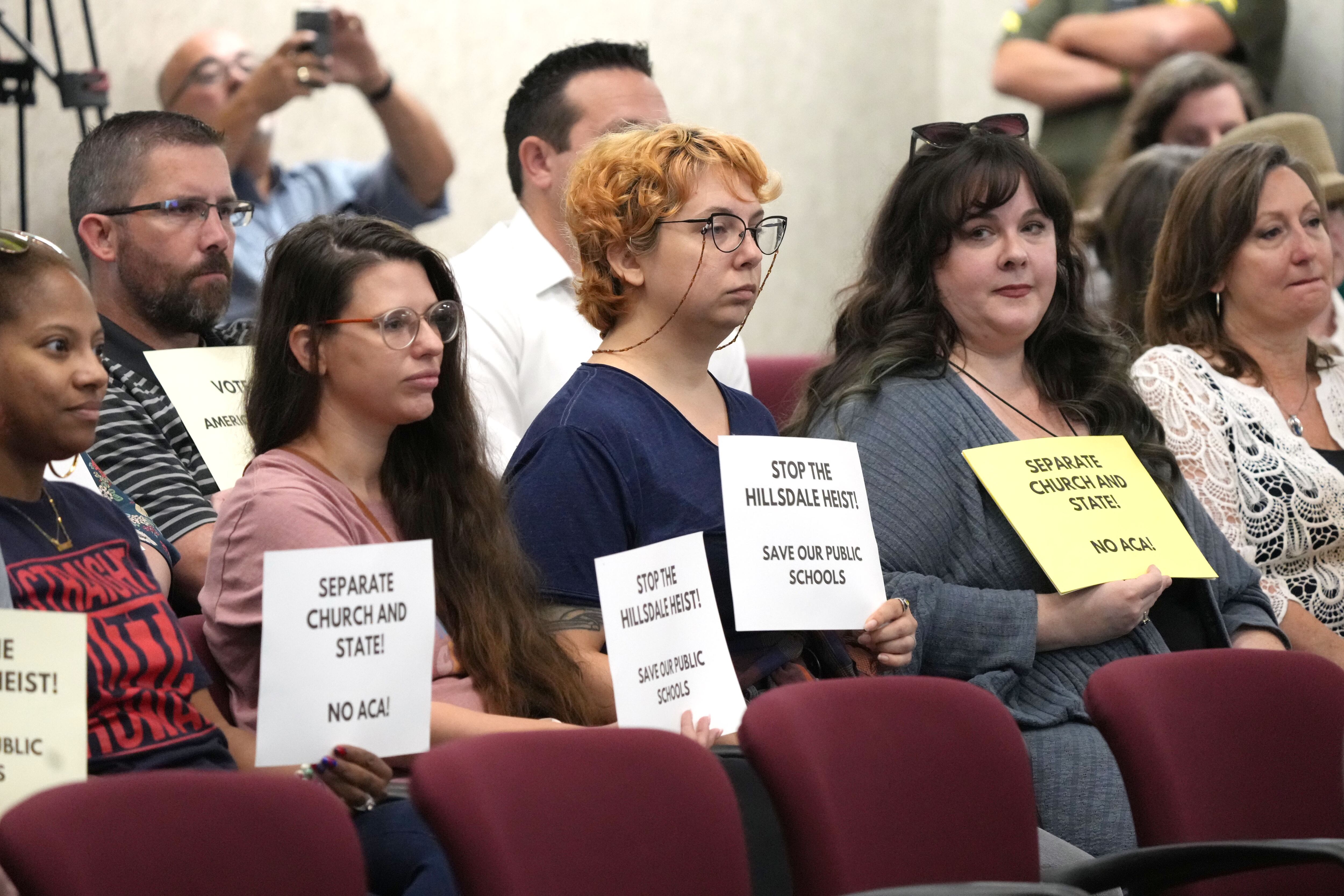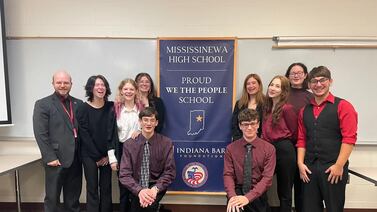Most Tennesseans who wrote the state about three proposed charter schools linked to Michigan’s Hillsdale College said they oppose the applications from the charter network, American Classical Education.
Statewide, more than 70% of the public commenters wrote that they supported local school boards that voted to deny the network’s applications in Madison, Montgomery, and Rutherford counties. And many said any decision by a state panel to overrule those decisions would amount to government overreach.
The written feedback from nearly 400 Tennesseans, analyzed by Chalkbeat, ran counter to the positions of most of the 39 people who spoke during last week’s time-limited public hearings held in each of the three affected school districts. The in-person speaking slots were filled on a first come, first serve basis, with American Classical supporters signing up for most of them and opponents complaining that the process was skewed toward approving their applications.
In Rutherford County, where all 13 commenters at a Sept. 14 hearing in Murfreesboro spoke in favor of the network’s charter proposal, people who submitted written comments opposed the school by a margin of more than 4 to 1.
The margins were much tighter in Jackson-Madison County, and tighter still in Clarksville-Montgomery County.
Ultimately, all feedback submitted in each district will be considered when the Tennessee Public Charter School Commission votes Oct. 5 whether to approve each American Classical application on appeal, said Tess Stovall, the panel’s executive director.
“We weigh all comments the same, oral or written,” Stovall told reporters after the Rutherford County hearing. Some people “can’t necessarily get here in person, so that’s why we offer multiple avenues.”
The votes will test the independence of the panel’s nine members, all of whom were appointed by Republican Gov. Bill Lee. Lee has said he wants 50 Hillsdale-linked charters in Tennessee and also lobbied for a 2019 law creating the appellate body.
Both Lee and Hillsdale College have been under sharp attack across Tennessee since June when a leaked video showed the governor sitting quietly at a private reception in Franklin, south of Nashville, while Hillsdale President Larry Arnn declared that teachers are “trained in the dumbest parts of the dumbest colleges in the country.” Lee has refused to disavow Arnn’s comments or end any charter “partnership” with the small conservative Christian college in south central Michigan.
The college’s charter spinoff also has been criticized for its approach to civics education and its 1776 curriculum, which glorifies the nation’s founders and downplays America’s role in slavery.
Both issues were raised by numerous Tennesseans who wrote the commission during the week after a public hearing in their district.
Arnn “demonstrated utter disrespect for educators and an arrogant ignorance regarding the craft of teaching and learning,” said Rebecca Oldham, a parent who is an assistant professor of child development and family studies at Middle Tennessee State University.
“I do not support an establishment in Murfreesboro that collaborates with him or his college, nor utilizes his propaganda that masquerades as ‘curriculum,’” Oldham continued.
Patricia Craig, who identified herself as a concerned citizen of Madison County and an 85-year-old student of history, worried about Hillsdale’s selective view of events that are presented through an ideological lens instead of a full telling of history based on the facts.
“This is a veiled attempt to present curriculum that further crushes poorer children (and) children of color and promotes only one world view,” Craig wrote.
Many supporters, meanwhile, praised the “classical” school model that focuses on math, science, literature, and history, plus the study of Latin, music, and the arts. American Classical also promises instruction on the principles of moral character and civic virtue.
“Why not give this program a try?” wrote Peg Ramsay from Jackson. “Madison County has gone thru several Superintendents with little achievement in academic success.”
“I think a classical academy would make our community a better place to live and to raise a family,” said Stuart Leach, a Rutherford County parent and teacher. “While not perfect, our history is full of inspiring men and women to learn from.”
Other supporters argued the charter network’s schools would improve public education by increasing competition and adding classroom seats to overcrowded districts. But most just wanted more public education choices for families.
“The Jackson-Madison area desperately needs another educational option, especially for lower income students, since the only other options are expensive private schools or homeschooling, which may also be cost prohibitive,” wrote Trudy Abel, a retired university professor.
Opponents argued that local education control is a bigger issue.
All three locally elected school boards voted overwhelmingly to reject the Hillsdale group’s applications.
“The issue concerning a charter school within Rutherford County is not about school choice but rather lack of ownership of our schools,” said Laura Roland, a teacher at Central Magnet School. “As a teacher of 20 years, I find it disturbing that those who are not in the trenches make assumptions about what is actually occurring in our schools.”
Others worried that public charter schools — which are privately operated and taxpayer-funded — divert money from traditional public schools. And many noted that none of American Classical’s applications included a concrete plan for serving students with disabilities.
“Instead of a charter school to help certain children, use that money to go into the public schools you already have to benefit ALL children,” wrote Lindsey White, also of Rutherford County.
The commission’s staff are using the same state-developed scoring criteria as the districts used to decide whether the applications meet Tennessee’s standards for academics, operations, and finances, plus whether the proposals are in the best interests of students, their school district, and their community. Ascertaining the level of local public support is a part of that process.
To read all the public comments, visit the commission’s website.
Marta W. Aldrich is a senior correspondent and covers the statehouse for Chalkbeat Tennessee. Contact her at maldrich@chalkbeat.org.








